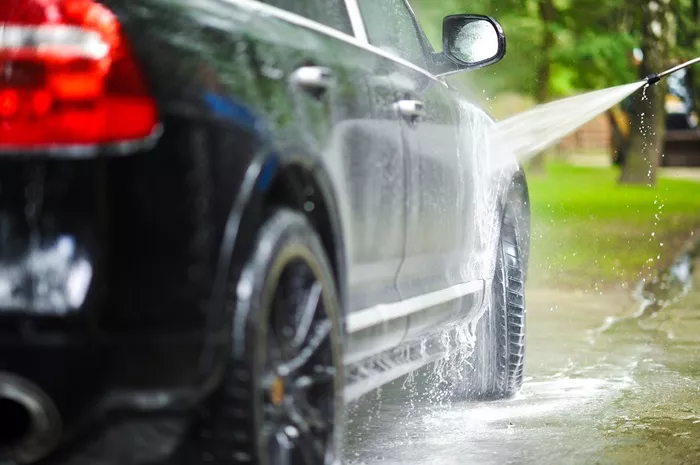Pressure washing can be an effective way to clean various surfaces. However, when it comes to a car engine, many car owners wonder if this method is safe. Cleaning your engine can provide several benefits, but it requires caution. This article explores whether it is okay to pressure wash a car engine and provides detailed insights into the process.
Understanding Engine Cleaning
Why Clean Your Engine?
Cleaning your engine serves multiple purposes. First, it helps remove grease, dirt, and grime that can accumulate over time. A clean engine can improve your vehicle’s performance by allowing it to run cooler. Second, it can help you identify leaks and other potential issues. A clean engine makes it easier to spot problems like oil leaks or worn hoses. Lastly, a clean engine contributes to the overall appearance of your vehicle, which can be beneficial if you plan to sell it.
Benefits of Cleaning Your Engine
Regularly cleaning your engine can enhance its lifespan. Dust and debris can cause overheating by obstructing airflow. By keeping the engine clean, you ensure that it operates efficiently. Additionally, a clean engine bay makes it easier for mechanics to service your vehicle.
Risks of Pressure Washing an Engine
Electrical Components
One of the main concerns with pressure washing a car engine is the risk to electrical components. Modern engines have many sensors and electrical connections that can be sensitive to water. High-pressure water can penetrate these components, leading to malfunctions. Water intrusion can damage sensors, spark plugs, and wiring, resulting in costly repairs.
Excess Water Accumulation
Another risk of pressure washing an engine is the potential for water accumulation. Engines are designed to withstand some exposure to water, but excessive water can cause issues. Water can collect in areas that are not easily accessible, leading to rust and corrosion over time. This is particularly a concern for older vehicles with components that may not be as well-sealed.
Dislodging Components
Pressure washing can also dislodge components or cover shields that are not tightly secured. If a part becomes loose during the cleaning process, it could cause further damage to the engine or lead to mechanical failure. It is important to ensure that all components are secure before attempting any cleaning method.
Safe Methods for Cleaning an Engine
Preparation Before Cleaning
If you decide to clean your engine, preparation is key. First, ensure that the engine is cool. Hot engines can cause burns and also make it difficult to clean effectively. Disconnect the battery to prevent any electrical issues. Cover sensitive areas with plastic bags, such as the air intake, electrical connections, and any exposed sensors. This will help protect them from water exposure during the cleaning process.
Using a Garden Hose Instead of a Pressure Washer
Instead of using a pressure washer, consider using a garden hose with a spray nozzle. This method provides a gentler spray that is less likely to damage sensitive components. A garden hose allows for better control and minimizes the risk of water accumulation. Make sure to use warm, soapy water to aid in cleaning.
Apply Degreasers Carefully
Before rinsing, apply a degreaser to areas with heavy grease buildup. Use a brush to scrub stubborn spots. Many degreasers are available specifically for automotive use. These products can effectively break down grease and grime without damaging your engine components. Rinse the engine gently with the hose after allowing the degreaser to sit for a few minutes.
Drying the Engine
Once you have rinsed the engine, it is essential to dry it properly. Use a microfiber towel to wipe down accessible areas. This will help remove excess moisture. Leaving water in the engine can lead to rust and corrosion over time. You can also allow the engine to air dry. Starting the engine after cleaning can help evaporate any remaining moisture.
see also: What is the Best Sun Joe Pressure Washer?
When to Seek Professional Help
Complex Engines
For vehicles with complex engine designs, consider seeking professional cleaning services. Professionals have the experience and knowledge to clean your engine safely. They also have specialized tools and equipment to ensure that no sensitive components are damaged during the cleaning process.
Severe Contamination
If your engine has severe contamination, such as oil leaks or heavy grease buildup, it may be best to leave the job to professionals. They can assess the situation and apply the appropriate methods to clean the engine effectively.
Regular Maintenance
If you find that your engine gets dirty frequently, consider a regular maintenance plan. Many automotive service centers offer engine cleaning as part of their maintenance packages. This can help keep your engine in good condition without the risks associated with DIY cleaning.
Conclusion
Cleaning your car engine is an essential part of vehicle maintenance. However, pressure washing is not generally recommended due to the risks it poses to electrical components and other sensitive areas. Using gentler methods, such as a garden hose and degreasers, can effectively clean the engine without causing damage.
Always prepare adequately before starting the cleaning process, and if you are unsure, seek professional assistance. A clean engine not only enhances your vehicle’s performance but also helps in identifying potential issues early. By following the right methods, you can maintain a clean and efficient engine while avoiding the pitfalls of pressure washing.
Related topics:

